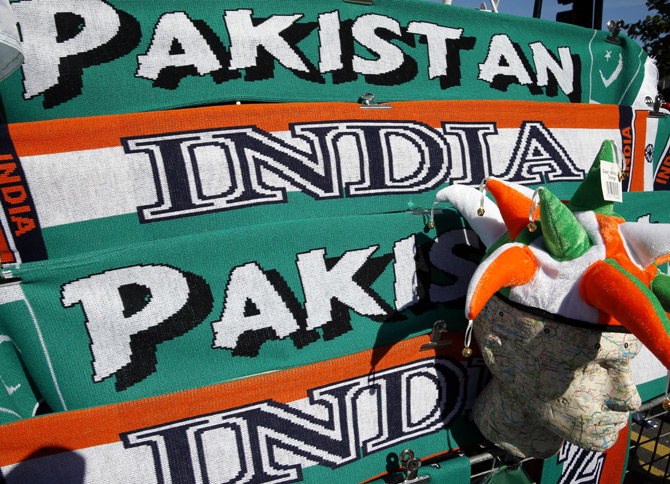'When the Kargil incident happened (in 1999), even then we didn't stop dialogues. We knew cricket was tough, but every effort was made to renew bilateral ties. I strongly believe politics and politicians shouldn't influence cricket.'

Newly-appointed Pakistan Cricket Board chief Ehsan Mani said that the dispute with the Board of Control for Cricket in India regarding bilateral series is beyond 'amicable settlement' as they are yet to find a common ground of solution.
The PCB has claimed Rs 447 crore as compensation for India not honouring an alleged Memorandum of Understanding (MoU) which required the two countries to play six bilateral series between 2015 to 2023.
The matter will be heard by the International Cricket Council's Dispute Resolution Committee in Dubai from October 1 to 3.
"This process has already gone beyond resolving it amicably," Mani said in Dubai on Monday.
"It's in the final stages of reaching a conclusion. Both sides have to find a common solution for the future and I will explore every possibility for the sake of the game. Had I been involved when the dispute happened, every effort would have been made to sort it bilaterally.
"Unfortunately, we are where we are. We have to still progress, but my doors are always open," said the former ICC president, who has just taken over from Najam Sethi.
Mani has spoken to BCCI acting secretary Amitabh Chaudhary and CEO Rahul Johri on the sidelines of the Asia Cup but it's unlikely that much ice has been broken.
The BCCI has always maintained that they won't be able to play without green light from the Indian government.
"I have already had a very constructive discussion with my colleagues from India who are here. We will have a lot of common ground going forward. We all understand whatever has happened in the past has happened; we have to move forward. At the end of the day, the game is bigger than any one person; it's bigger than the politicians. It reaches out across global spectrum."
Mani also maintained that cricket and politics should not be mixed.
"When politicians talk, we shouldn't get into it. We should focus on matters concerning the cricket boards. When the Kargil incident happened (in 1999), even then we didn't stop dialogues. We knew cricket was tough, but every effort was made to renew bilateral ties. I strongly believe politics and politicians shouldn't influence cricket."
Photograph: Paul Childs/Reuters











